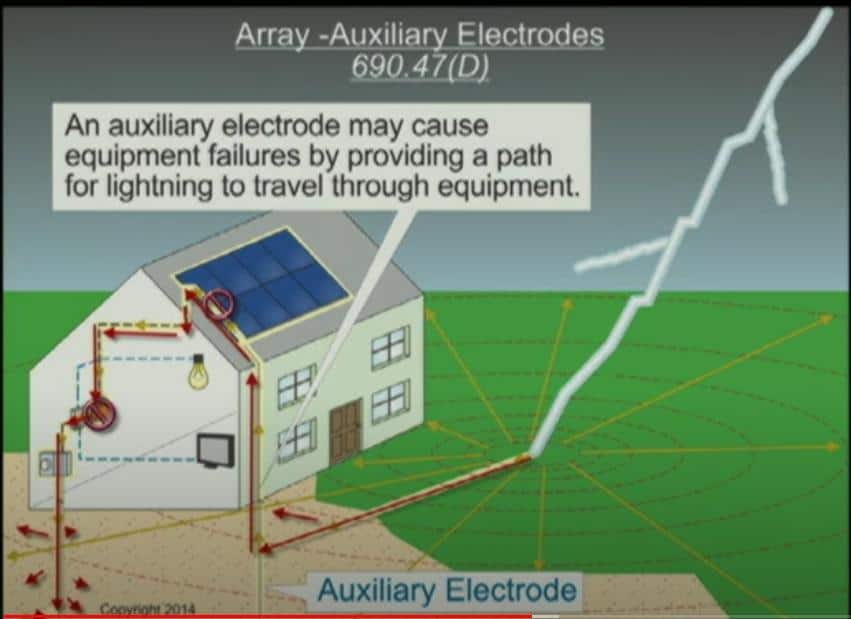Avoiding Lightning Damage: Part 1
Can SnapPads under your leveling jacks help reduce damage to your RV electrical system from a nearby lightning strike?
Staying safe in a lightning storm
Can RV SnapPads under your leveling jacks help reduce damage to your RV’s electrical system from a nearby lightning ground strike?
I’m done this study just in time for lightning season. For many years I made the claim that insulating pads under your RV jack stands would do nothing to protect your RV from electrical damage in the event of a direct lightning strike. And I believe that is still true, having performed a recent insurance inspection for a $500,000 coach that suffered a direct lightning strike on its roof.
However, for every direct strike, there are probably hundreds or thousands of smaller lightning ground strikes in the area that energizes the campground wiring. Could be as simple as a lightning strike on a nearby tree. Lightning takes multiple paths to earth, so it’s going to spread out for dozens or hundreds of yards before it totally grounds out.
And it’s possible that insulating jack pads could prevent something I’m now referring to as a whiplash effect through the ground and where a lightning current spike damages more of your electrical system due to secondarily grounding your RV, rather than insulating it from the ground.
Join me as I study this phenomenon and review technical papers on how insulating your leveling jacks might reduce electrical damage to your RV.
Just the basics
Here’s a screenshot of the video that got me interested in the effect, and why I contacted SnapPad about the possibility that their jack pads may provide extra protection for your RV’s electronics from nearby lightning ground hits. Note that when lightning hits the earth it doesn’t go straight down. Instead it takes multiple paths across the earth in varying depths in an attempt to find true earth ground.
A mind experiment…
Now let’s imagine that your RV is sitting on its metal jack stands on the wet ground, so it has a fairly good connection there. These jack pads are acting like a secondary grounding rod (albeit a rather small one). Now instead of the lightning electrical pulse coming into your RV from the pedestal, what if the current spike comes across the earth, is picked up by your grounded jack stands, and then tries to leave your RV via your shore power ground connection in the pedestal? I can only imagine that will wreak havoc with all of your expensive RV electronics.
What about a direct lightning strike?
Now as I’ve noted many times before, nothing can stand in the way of a direct lightning hit to your RV, and only a metal-skin RV can shield the occupants (you) from the lightning going directly through your RV. But I do believe that insulating pads from a company like SnapPad can reduce and possibly eliminate damage to your RV electronics if lightning hits nearby and you’re still plugged into shore power.
This is Part 1 of study that’s was funded by SnapPad. They’ve commissioned me to create a report on what I find, good or bad. So watch for Part 2 of this study in a few days as we get into lightning season soon and I publish more papers and studies on this effect. Now if only I could build a 30-foot-tall Tesla coil in the back yard to make a real lightning simulator. And then I have to find someone to loan me their RV. We shall see….







I'm quite familiar with ground currents. From 1976 to 1996 I was an electronic technician in central Florida, the lightning capital of the US.
I saw numerous cases of damage to TV tuners and other components due to the way they were grounding the cable systems at the time.
The incoming power may be grounded at one end of the house and the cable at the opposite end may be 40 or 50 ft away. It was determined that such a situation could cause a potential as much as several thousand volts between the two grounds as a result of a ground strike nearby. In some cases the cable companies were being held liable for damage until they changed the location of their ground. As a result, all cable and tv antenna systems were required to be grounded at the same point as the incoming power ground.
We spend a lot of time dry camping. Could you comment on the efficacy of insulating pads when our trailer isn’t hooked up to a pedestal? We have a metal-skinned trailer. It seems that the odds of a nearby lightning strike are much higher than a direct hit.